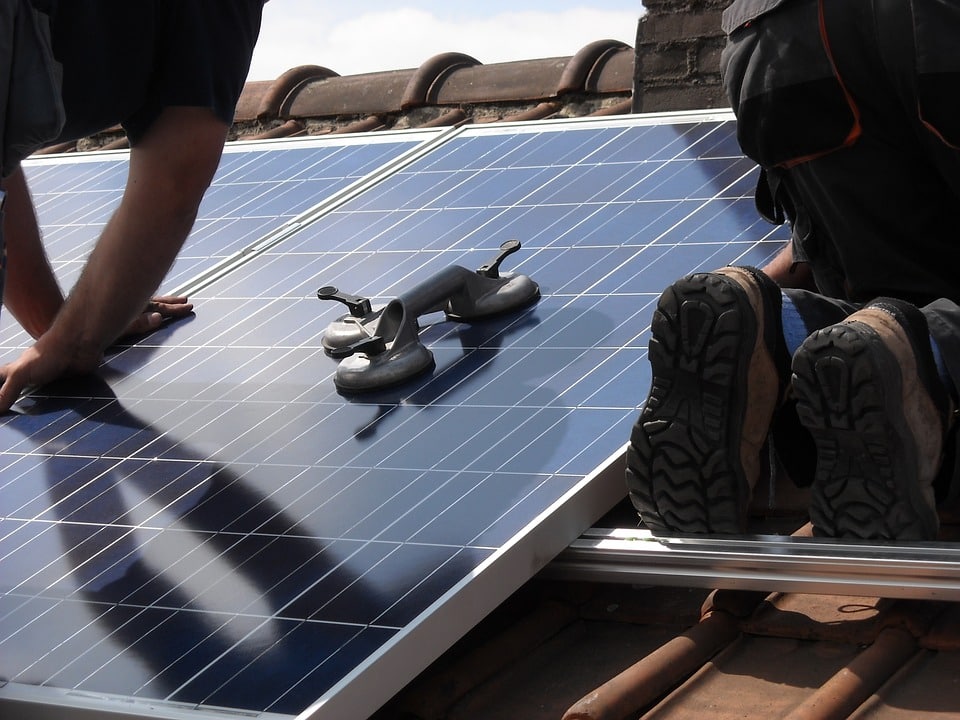
Tips to Conserve Energy at Home While Quarantined

The national enforcement of social distancing practices has led to many Americans, self-isolating, social distancing and working from home. While you may be seeing reduced spending on transportation, being stuck at home with the whole family can mean you are spending more than you would like on utilities. Here are some eco-conscious tips to help conserve energy while working from home.
Switch to Energy Efficient Lighting
If you haven’t gotten around to switching your incandescent bulbs to LEDs, now is a better time than ever. Next time you are out for groceries or essentials to check to see if they have LEDs. The U.S. Department of Energy estimates they use 75% less energy and can last 25 times longer than traditional bulbs. Solar lighting is also an excellent option especially as we start to see more of the sun during the summer months. Several solar lighting options still use solar fuses, but don’t require heavy-duty installation and are wire-free.

Adjust Your Heat Settings
Keep this tip in mind when you return to your normal routine as well. Only heating areas of the house you are frequently using instead of the entire house can save a lot more than you may realize. Turning down the heating even just a degree or two can have a substantial effect on your monthly bill. Many people are content existing in their pajamas as they settle into their new home offices, but opting for sweats or a cozy throw blanket can be just as cozy. As warmer days and nights roll in you may even be able to turn off the heat completely.
Check Your Shower Habits
The same goes for hot water, turning down your water heater by even a few degrees can go a long way especially if you have multiple people showering throughout the day. Now is a good time to break the habit of piping-hot, long-running showers. Just shaving 2-5 minutes off your shower time can save 10-20 gallons of water.
Make The Rounds
Make a habit of turning off all electrical appliances when you aren’t using them. Even small appliance and smartphone chargers drain on power when left plugged into the wall. When you are done in a room turn off and unplug as much as you can before you leave. Using power strips will avoid overloading any of your electrical outlets, and make it easy to “unplug” multiple appliances at one time. For those who know they are forgetful, it may be helpful to invest in smart power strips which do most of the regulation for you and can help curb energy usage by almost 50%.
Use Natural Light
Relying on desk lamps and overhead lighting when you have a natural alternative is another drain on your monthly utility bill. When setting up your new home working space try to find an area with the most access to natural lighting and face toward open windows. During the day, open the blinds to let the light in, or if possible spend a few hours working outside on your porch or balcony, a breath of fresh air and change of scenery can even help boost productivity. Don’t forget to close them again at night to help keep the heat in.
Work Smarter in the Kitchen
Many people are surprised to find out dishwashers save a substantial amount of water in comparison to hand washing dishes. Not only does the water stay on while waiting for it to heat up but it’s continually running down the drain as you scrub. Energy Star estimates dishwashers use several thousand gallons less per year of hot water. Waiting to run the dishwasher until it’s as full as possible, will also reduce the amount of water wasted. Be sure to check the settings are as conservative as possible, such as turning off the heated dry option.
Whether you are self-isolating or working remotely, all the excess time you and your family will be spending indoors is bound to quickly add up on energy bills. Depending on the kind of work you can do from home during this time, you may be entitled to receiving tax breaks on a percentage of your energy bill. In the meantime, implementing some of these tips can help cut down on spending and reduce your environmental footprint.



Post a comment